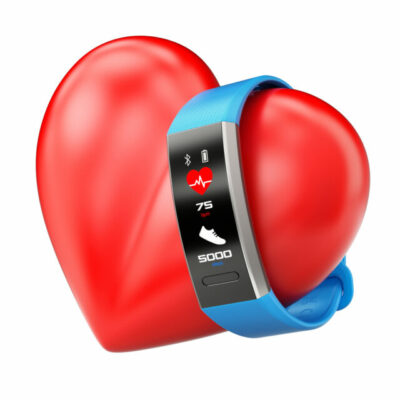Your Fitbit Charge is much more than a trendy wrist accessory—it’s a sophisticated device designed to track various aspects of your fitness. But how reliable is it? Does it offer an accurate measurement of your steps, sleep, heart rate, calories burned, and distance covered? Let’s delve into the accuracy of the Fitbit Charge in tracking fitness metrics.
The Fitbit Charge is not just a regular wearable device—it’s a compact fitness tracking powerhouse designed to provide a holistic view of your daily activities. This in-depth review aims to assess the device’s accuracy by evaluating multiple aspects, including step counting, sleep tracking, heart rate monitoring, calorie tracking, and distance measurement. Buckle up, fitness enthusiasts! You’re about to discover the truth behind your favorite fitness tracker.

An Overview of Fitness Metrics Tracked by Fitbit Charge
Fitness metrics are essential indicators of your health and physical performance. The Fitbit Charge monitors several such metrics, including steps taken, sleep patterns, heart rate, calories burned, and distance covered. These metrics are pivotal in shaping our understanding of our bodies and guiding us towards our fitness goals.

Fitbit Charge’s Accuracy in Measuring Steps
Fitbit Charge employs a 3-axis accelerometer to measure your steps. Multiple studies have corroborated its accuracy, although slight deviations may occur in complex terrains. User testimonies have been largely positive, though some have reported discrepancies during slow walks or when the wrist is stationary. Compared to other devices, the Fitbit Charge demonstrates commendable accuracy, only falling short during activities with less wrist motion.
Fitbit Charge’s Precision in Sleep Tracking
The science behind Fitbit’s sleep tracking is intriguing—it uses a combination of movement and heart rate data. However, it may not match the precision of professional sleep studies. Users have reported variations, particularly in detecting wakeful periods during sleep. When compared to other sleep trackers, Fitbit Charge tends to overestimate sleep duration, making it a potentially less accurate choice for those with sleep disorders.
The Truth About Fitbit Charge’s Heart Rate Monitoring Accuracy
Fitbit Charge uses PurePulse technology to monitor heart rate. While it’s been found accurate for most low to moderate-intensity activities, high-intensity workouts can present challenges. Users have reported occasional inaccuracies during vigorous activities, a common issue among wrist-worn heart rate monitors. Nevertheless, compared to chest strap monitors, Fitbit Charge holds its ground and offers reasonable accuracy for non-athletic use.
How Accurate is Fitbit Charge in Tracking Calories Burned?
Calorie burn tracking is another pivotal feature of Fitbit Charge. It calculates calories burned using your basal metabolic rate and activity data. However, it’s critical to remember that individual variations may affect the accuracy. User experiences have been mixed, with some reporting overestimations. In comparative terms, Fitbit Charge performs on par with most fitness trackers, but there is room for improvement.
Fitbit Charge’s Accuracy in Distance Tracking
Fitbit Charge measures distance based on your stride length and steps. Its accuracy is generally reliable on flat surfaces, but hilly terrains may pose challenges. User feedback suggests minor discrepancies in distance measurement during activities like cycling or rowing. In comparison with other fitness trackers, the Fitbit Charge showcases similar accuracy, although GPS-enabled devices may offer more precise data.